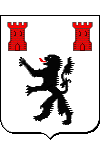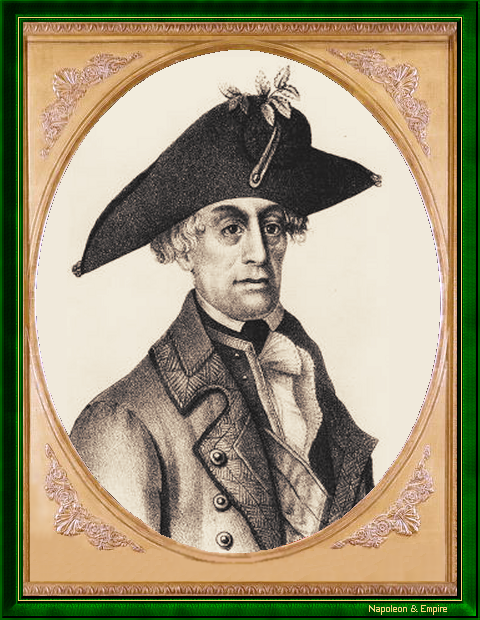Johann von Beaulieu
Grand Cross of the Military Order of Maria Theresa
Pronunciation:

Johann Pierre de Beaulieu-Marconnay was born on October 26, 1725 in Lathuy , Brabant (near Namur, now in Belgium), into a family of gentlemen.
He embarked on a military career at an early age, joining the Duke of Lorraine's regiment in the Austrian army, and taking part in the Seven Years' War against the Prussians (1756 to 1763). His bravery earned him the Cross of the Order of Maria Theresa in 1760 and the title of Baron in 1763.
From 1763 to 1789, he was a staff colonel, but the quarter-century following the Peace of Hubertsburg allowed him to devote himself to the arts, sciences and his son's education.
In 1789, Johann von Beaulieu was appointed general-major and commanded the troops responsible for quelling the Brabant revolution. It was during one of these battles, on May 23, 1789, that he lost his only son, fighting at his side; his bravery at this tragic moment impressed his men.
In 1792, as lieutenant-general, he fought against French troops on the Dutch border, in Flanders and in the province of Luxembourg, with notable success.
On March 4, 1796, his reputation earned him the command-in-chief of the Army of Italy, with its 42 battalions, 24 squadrons, 140 cannons and 45,000 men. The old general's experience (he was seventy-one) was put to the test during this campaign in an unfamiliar country, whose inhabitants' sympathies tended towards their enemy, constantly thwarted by Napoleon Bonaparte's impetuosity: the troops under his command were defeated at Montenotte (April 11 and 12, 1796), Millesimo (April 13 and 14), Dego (April 14 and 15) and Mondovi (April 21), then finally at Lodi on May 10, 1796, which opened the gates of Milan and Lombardy to the French army. He tried to save Mantua by retreating behind the Mincio, but Bonaparte's assault on Borghetto on May 30 forced him to withdraw to the north of the Tyrol, leaving the fortress of Mantua to its fate.
Following these bitter setbacks, he handed over command to Dagobert Sigismund von Wurmser on June 21, 1796, and ended his military career.
He retired to his castle near Linz, Austria, where he lived in sad solitude for many years, and died on December 22, 1819.
"Johann, Baron von Beaulieu". Print of the nineteenth century.

The contrast between this old man, who had finally reached the pinnacle of his career after more than fifty years of service, and his energetic young adversary is stark. Yet General Beaulieu, who had the dubious privilege of being the first to take on a Napoleon Bonaparte commander-in-chief, was not a mediocre military man, nor did he occupy his position without reason. Described in his youth as daring and ardent, with great energy and constant activity, he had nevertheless seen these initial qualities gradually exhausted over the long years spent in the service of a military bureaucracy as cumbersome as it was rigid and fussy, governed by an aulic council both sclerotic and confined to an outdated doctrine. What's more, while Bonaparte was well acquainted with the terrain of their confrontation, having surveyed it two years earlier, Beaulieu discovered mountain warfare on the occasion of this campaign. It was more than enough to set him up for failure.
Other portraits

"Johann von Beaulieu-Marconnay" by Germain Joseph Hallez (Frameries, Hainaut 1769 - Mons, Belgium 1840).